Biblioteca Virtual de Prensa Histórica | Virtual Library of Historical Newspapers
E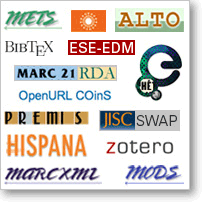 ste portal es el resultado de un proceso de digitalización cooperativa del Ministerio de Cultura, las Comunidades Autónomas y otras instituciones de la memoria para preservar y hacer accesibles la Prensa Histórica publicada en España.
ste portal es el resultado de un proceso de digitalización cooperativa del Ministerio de Cultura, las Comunidades Autónomas y otras instituciones de la memoria para preservar y hacer accesibles la Prensa Histórica publicada en España.
Esta nueva versión de la BVPH incorpora diversas novedades, entre ellas una importante y nueva funcionalidad que permite buscar por cualquier palabra de cualquier página de cualquier periódico digitalizado.
La solución, que debía garantizar el intercambio de información entre instituciones de todo el mundo, la ha proporcionado ALTO (Analyzed Layout Text Object) que se utiliza en grandes proyectos de reconocimiento óptico de caracteres (OCR) en prensa digitalizada, tanto de Europa como del resto del mundo y, muy especialmente, en Estados Unidos y Australia.
The Virtual Library of Historical Newspapers is the result of a process of cooperative digitizing by the Ministry of Culture and the Autonomous Regions and other memory institutions, whereby the intention is not only to preserve, but also to offer access to bibliographic materials that are denoted for being unique copies and, therefore, not easily accessible.
This new version of the Virtual Library of Historical Press (Biblioteca Virtual de Prensa Histórica) has an important new function: the ability to search for any word on any page of any digital newspaper.
This new function was omitted at the start of the project so that optical character recognition could be completely assured without having to use a data processing solution that would be excessively dependent on just one brand or commercial product that would subsequently hinder information exchange, which is essential to a project such as this one, which is being carried out in cooperation between the Ministry of Culture and the Autonomous Communities, as well as a growing number of memory institutions.
The solution was provided by ALTO (Analyzed Layout Text Object), which has been used in large-scale optical character recognition projects and press digitisation projects in Europe, the rest of the world and especially the United States and Australia.
Formas y colores │ Shapes and colours
Hoy hemos hablado de las formas y los colores y nos divertido mucho haciendo un collage de cuadrados, círculos y triángulos. Aunque creo que lo que más nos ha divertido es ir a cazar formas por la biblioteca.
Today we were playing with shapes and colours. Paste and colouring our train and ship was so funny, but in my opinion the funniest was hunting shapes in all the library.
Club de lectura: Tiempo de arena de Inma Chacón
La Dr. Benigna Margarita García Rodríguez, asesora de Educación de la Consejería de Educación en Australia nos ha escrito sobre la próxima sesión del club de lectura.
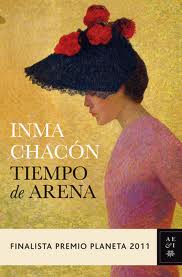
Inma Chacón (Zafra, España, 1954) profesora y periodista no comenzó su carrera como escritora hasta que falleció su hermana gemela Dulce. Su primera novela, La princesa India, fue un homenaje a su hermana. Tiempo de Arena es su cuarta novela
Jueves 21 de febrero: Libro del mes
Pertenecer a un club de lectura en el que se leen distintos libros tiene ventajas y entre ellas está que, gracias a los demás lectores, descubres libros que quizá no habrías leído sin su consejo.
Tiempo de Arena fue una recomendación de una lectora del Club de Lectura. Sin su consejo posiblemente no la habría leído. Aunque fue finalista del Premio Planeta en 2011, las referencias que aparecían sobre la novela: “novela coral, historia de mujeres, refleja la historia de España entre siglos (XIX y XX), intriga sentimental”…coincidían con los temas que últimamente se repiten en las novelas de más éxito en lengua española e inglesa. Yo quería algo diferente, que me sorprendiera y pudiera compartir con otros lectores sin tener que compararlas con El tiempo entre costuras, Dime quién soy, Agua de limonero.…, pero se acercaban las vacaciones de verano y lectura perezosa junto al mar y decidí darle una oportunidad. Me sorprendió gratamente, no sólo descubrir mundos de los que no se habla tanto como Filipinas sino también la relación entre tres hermanas que son reflejo de las diferentes culturas y tendencias que se vivían en España. El tapiz de la novela está escrito con puntadas pequeñas que nos permiten observar matices más precisos de la realidad.
Pero no quiero revelar nada más para que os animéis a leerlo y tengáis una idea de lo hablaremos en la próxima reunión.
Benimar.
Would you like to live in Spain?
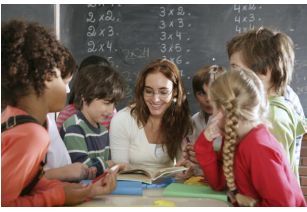 Language assistants program in Spain 2013-2014
Language assistants program in Spain 2013-2014
The language and culture assistants program is an initiative of the Spanish Ministry of Education. The program is primarily devoted to providing scholarships for Australian university students –majoring in any subject-and graduates with some proficiency in Spanish.
Its main objective is to provide Australian native English speaking university students with the opportunity to teach English in Spain in primary, secondary and language schools (12/16 hours a week).
Students will spend a full academic year, from October to June in Spain. Preferred placement in different Spanish regions can be requested. The language assistants receive a scholarship to cover accommodation expenses, (between 700 and 1000 euros monthly), an orientation course and full medical insurance. Travel costs to and from country of origin will be the responsibility of the scholarship recipient. Candidates must be Australian nationals, posses a university degree or be in their final bachelor’s year at the end of the current academic year and be native speakers of English.
For next school year 2013-2014 the on line application period is: 10 January – 2 April, 2013.
For further information please click here
Ms. Rosa Prieto VIC, SA, WA, TAS
Consulate General of Spain in Melbourne
146a Elgin Street, Carlton, 3583 – Victoria
Tel 61 (0) 3 9347 9834
rosa.prieto@mecd.es
Dr. Benimar García NSW, QLD, ACT, NT
Spanish Resource Centre – Manuka Court,
Bougainville Street, Manuka, ACT 2603
Tel 61 (0) 2 62 39 71 53
benimar.garcia@mecd.es
[Biblioteca] Sábados infantiles en español│ Saturdays in Spanish for kids
El pasado sábado tuvimos la primera sesión de actividades en español para niños en la biblioteca y fue todo un éxito. En el centro estamos muy contentos con la gran acogida que ha tenido esta actividad y esperamos otro lleno para la próxima.
Last Saturday there was the first activities for kids session in the library. It was a success. In the Institute we are so glad because the activity was full capacity and we expect the same February 16.
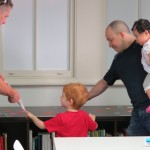
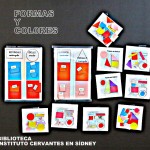
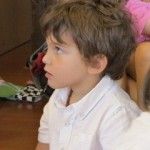
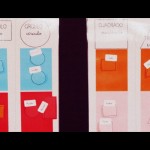
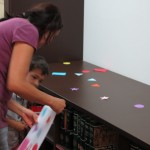
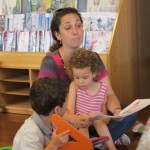
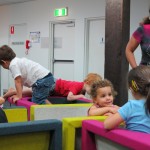


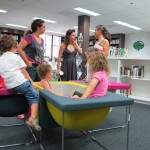
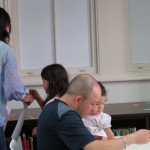

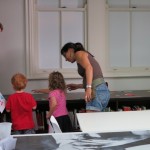
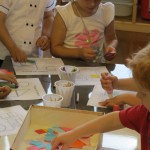

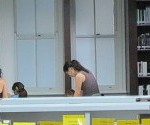
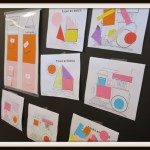

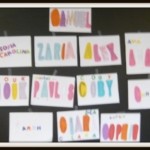
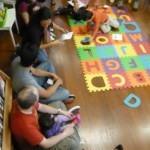
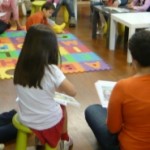
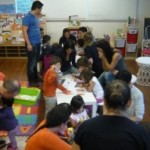
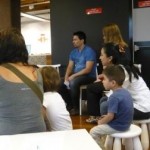
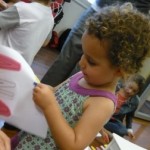
Comentarios recientes │Last entries